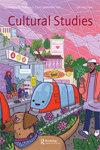日本的传播极权主义:“去语境化”和“再语境化”与数字传播环境
IF 1.6
3区 社会学
Q1 ANTHROPOLOGY
引用次数: 0
摘要
在日本,年轻人对政治越来越冷漠,与此同时,他们正经历着一种右倾和对极权主义和威权主义越来越多的同情。为了理解这种矛盾,我们需要看看他们参与政治话语的数字传播环境。在这方面最有代表性的意见领袖之一是西村博之。近年来,Hiroyuki被广泛称为“反驳之王”,在年轻一代中非常受欢迎。他在政治和社会问题上非常活跃,以逻辑和中立的方式辩论。然而,尽管他的论证模式开明,他的论点被认为是与极权主义和威权主义观念相适应的。本文认为,这种反驳模式的核心是一个“去语境化”和“再语境化”的过程,这一过程降低了问题的复杂性,使多数人能够理解,同时压迫少数人。这种反驳模式以及“去语境化”和“再语境化”的过程是他运营的各种数字交流平台的核心,这些平台已经成为世界各地政治交流的中心:2channel、4chan、Nico Nico Douga和YouTube剪辑。从这个意义上说,年轻一代的极权主义和右倾不是由于特定的意识形态,而是受到传播环境的强烈制约。“传播极权主义”可以用来描述日本正在发生的极权主义和右翼倾向。关键词:去政治化、传播、共产主义、极权主义、右倾渠道披露声明作者未发现潜在的利益冲突。注:15 channel, https://5ch.net(最后一次访问:2023年1月25日)2例如,以下视频对西方媒体对中国政府新冠肺炎政策的批评进行了重新批评。【理解某件事】方芳的武汉日记发表了,熟悉的菜谱有那味道。2020年4月10日,https://www.bilibili.com/video/BV1AT4y1G7rQ?share_source=copy_web(最后访问日期:2023年1月25日)补充信息杨俊晓杨俊晓,现任日本早稻田大学文理学院助理教授。他在早稻田大学获得文学博士学位。除了学术研究外,他还为一般媒体撰写文学、亚文化和媒体评论。本文章由计算机程序翻译,如有差异,请以英文原文为准。
Communication totalitarianism in Japan: ‘Decontextualisation’ and ‘Recontextualisation’ and the digital communication environment
ABSTRACTIn Japan, young people are becoming increasingly apathetic about politics, while at the same time they are experiencing a rightward leaning and a growing sympathy for totalitarianism and authoritarianism. To understand this contradiction, we need to look at the digital communication environment in which they engage in political discourse. One of the most representative opinion leaders in this regard is Hiroyuki Nishimura. In recent years, Hiroyuki has become widely known as the ‘King of Refutation’ and is immensely popular among the young generation. He is very active in political and social issues, arguing in a logical and neutral manner. However, despite his enlightened mode of argumentation, his arguments have been perceived as accommodative to totalitarian and authoritarian perceptions. This paper argues that at the heart of this mode of refutation is a process of ‘decontextualisation’ and ‘recontextualisation’ which has resulted in reducing the complexity of the issue, making it comprehensible to the majority while oppressing minorities. And this mode of refutation and the processes of ‘decontextualisation’ and ‘recontextualisation’ are at the centre of the various digital communication platforms that he operates and that have become hubs of political communication around the world: 2channel, 4chan, Nico Nico Douga and YouTube clips. In this sense, the totalitarianism and rightward leaning of the young generation is not due to a specific ideology but is strongly conditioned by the communication environment. ‘Communication totalitarianism’ can be used to describe the totalitarianism and right-wing tendencies taking place in Japan.KEYWORDS: DepoliticizationcommunicationCMCtotalitarianismrightward leaning2channel Disclosure statementNo potential conflict of interest was reported by the author(s).Notes1 5channel, https://5ch.net (last access: January 25, 2023)2 For example, follow video have made a re-criticism to Western medias’ criticism of Covid-19 Policy of the Chinese Government. Guancha.cn(观察者网),【Understanding Something(懂点儿啥)48】Fang Fang’s Wuhan diary published, the familiar recipe has that taste (方方武汉日记出版,熟悉的配方有内味了). April 10 2020, https://www.bilibili.com/video/BV1AT4y1G7rQ?share_source=copy_web (last access: January 25, 2023)Additional informationNotes on contributorsJunxiao YangJunxiao Yang is currently an Assistant Professor in the faculty of Letters, Arts and Science at Waseda University in Japan. He obtained his PhD in Literature from Waseda University. He writes critiques about literature, subculture, and media for general media, in addition to his academic research.
求助全文
通过发布文献求助,成功后即可免费获取论文全文。
去求助
来源期刊

Cultural Studies
Multiple-
CiteScore
3.50
自引率
6.70%
发文量
0
期刊介绍:
Cultural Studies is an international journal which explores the relation between cultural practices, everyday life, material, economic, political, geographical and historical contexts. It fosters more open analytic, critical and political conversations by encouraging people to push the dialogue into fresh, uncharted territory. It also aims to intervene in the processes by which the existing techniques, institutions and structures of power are reproduced, resisted and transformed. Cultural Studies understands the term "culture" inclusively rather than exclusively, and publishes essays which encourage significant intellectual and political experimentation, intervention and dialogue.
 求助内容:
求助内容: 应助结果提醒方式:
应助结果提醒方式:


